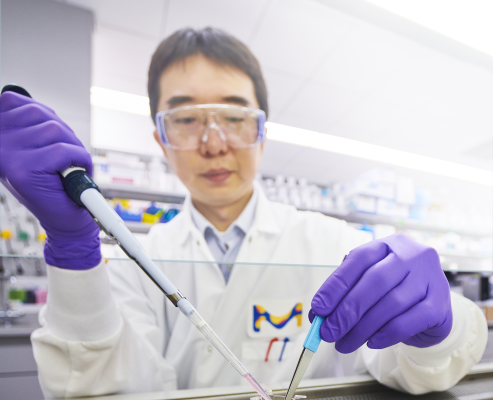Partnership combines MilliporeSigma’s chemistry and organoid expertise with Promega’s assay technologies

MilliporeSigma, the U.S. and Canada Life Science business of Merck KGaA, Darmstadt, Germany, a leading science and technology company, has entered into a partnership with Promega Corporation, a global life science solutions and service leader based in Madison, Wisconsin, to co-develop novel technologies that advance drug screening and discovery.
The agreement unites MilliporeSigma’s strength in organoids and synthetic chemistry with Promega's market leading assay and reporter technologies. Together, the companies aim to develop assays capable of tracking cellular activity in real time using an innovative reporter system within three-dimensional (3D) cell cultures. These 3D cell cultures, also called organoids, mimic the human biology, where testing can be done in a model that is physiologically more relevant than traditional two-dimensional (2D) models.
“This partnership with Promega shows what is possible when two companies with a shared commitment to science join forces,” said Anand Nambiar, Head of Science & Lab Solutions for the Life Science business of Merck KGaA, Darmstadt, Germany.
“By combining our organoid expertise with Promega's advanced reporter technology, we aim to enable high throughput screening that helps researchers identify safer and more effective drug candidates for complex diseases such as cancer—and do it faster than ever before.”
“Collaborating with MilliporeSigma allows us to push the boundaries of drug discovery,” said Tom Livelli, VP, Life Sciences Products & Services at Promega Corporation.
“By combining our technological strengths, we are helping to create more relevant and accessible models for drug discovery, with the goal of enabling new insights and eventually better outcomes for patients.”
In addition to the primary co-development agreement, MilliporeSigma and Promega have signed a separate agreement to explore the integration of the company’s Duolink with Promega’s HiBiT technologies.
This aims to create new workflows for studying protein interactions inside cells, providing researchers with deeper insights into cellular signalling and supporting applications in both biologics and small molecule drug discovery.

Subscribe To Our Newsletter & Stay Updated